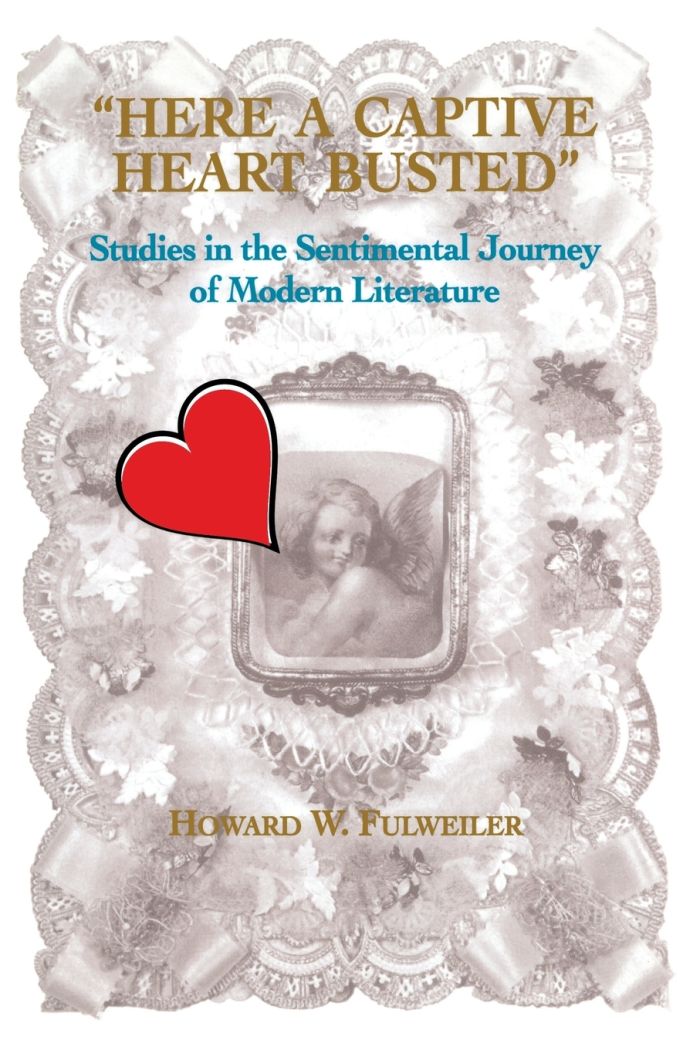Here a Captive Heart Busted
Studies in the Sentimental Journey of Modern Literature

This book can be opened with

Contemporary readers who look at late-eigteenth-century or nineteenth-century imaginative literature must be struch by a phenomenon that is nearly universal in the period: the powerful presence of sentimentality. An often overlooked fact is that "Sentimentality" not only is a critical term, but is limited to a historical period, from roughly 1700 to the present. Fulweiler's hypothesis is that setimentality in writing has played a crucial part in shaping Western consciousness. As a study of evolution of consciousness-rather than the history of ideas- the argument grows out of the work of philosophers such as Ernst Cassirer and Susanne Langer, historical philosophers including R.G. Collingwood, Thomas Kuhn, and Michel Foucault, historically oriented literary critics such as Erich Auerbach, and finally the eclectic writing of Owen Barfield.
Fulweiler's hypothesis is that the general consciousness of Western society has undergone severe shocks as a result of the loss-and sometimes repression- of an older human awareness of what anthropologists have called "participation," a term that may be defined as a non-sensory link between human beings and nature. This loss of participation has become gradually apparant with the erosiion of its visible emblems: The Church (with its supporting Law); the extended family, as visualized in feudal, hierarchical theories of society; and finally the nineteeth-century ideal, the nuclear family, with its sacred location, the home, and its glorified Proprietress, the Woman. Sentimentality emerges, then, as a desperate, if often illegitimate, attempt to regain what has been lost, so that imaginative literature of the nineteenth century, even very good literature, is overwhelmed by domestic sentimentality. In the twentieth century it has been heavily, although covertly, affected by a sexual sentimentality of the previous era.
This sentimental journey is traced by focusing on six major writers: Tennyson and Dickens as the giants of Victorian domestic sentimentality, Hopkins and Hardy as transitional figures in whom the sentimental tropes of the ninteenth century are moving toward the sexual sentimentality of the twentieth, Lawrence and Eliot as representatives, in different ways, of that era. This multi-faceted study will be of considerable interest to specialists across a number of fields including literature, history, psychology, philosophy, and religious studies.
Sentimentality, defined as an 'appeal to emotion which has become conventional rather than fresh, dogmatic rather than imaginative, reductive rather than enlarging,' emerged in the late 18th century. It focused on the family, with women as its bedrock and children as its continuum. A reaction to the socially dissolving effects of post-Cartesian mechanism and chilling individualism, it was less apparent to 19th-century readers than to their jaded successors. Fulweiler traces the progress of sentimentality in key works of Tennyson, Dickens, Hopkins, Hardy, Lawrence, and Eliot. He shows how sentimentality ranges from overplaying the loss of children or the fall of women to romanticizing sexuality itself and blood ties to ancient ritual.——Library Journal

